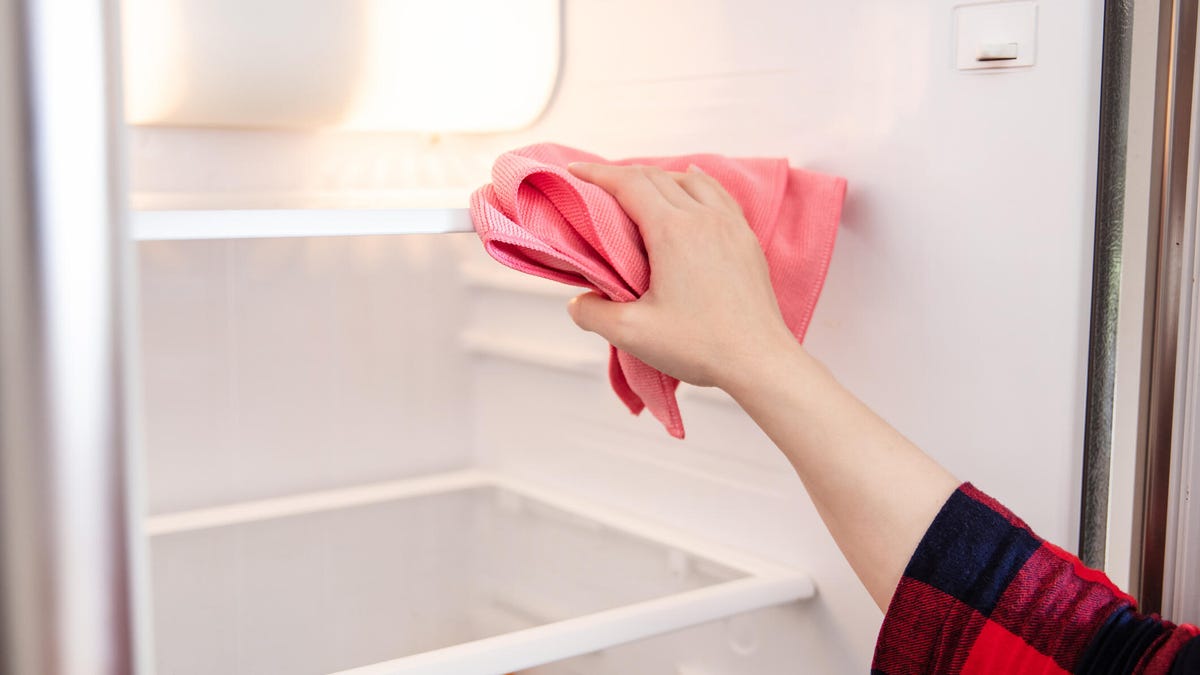 Why You Can Trust CNET
Why You Can Trust CNET You Want to Lower Your Power Bill? Clean Your Fridge
Last year's salad dressing gives you a stomach ache and your power bill gives you a headache, but here's how you can solve them both in one fell swoop.

Regularly cleaning your fridge doesn't just keep funky smells out of your food. It can lower your power bills.
Your fridge is gross. Your power bill is high. Solving the first problem might help you just a bit with the second.
This might take more than just throwing out the takeout noodles you never got around to eating last month. Your fridge likely has deeper issues that are making it less energy-efficient.
"People never clean their fridge, both inside and out," said Nicholas Rajkovich, a professor at the School of Architecture and Planning at the University at Buffalo. "That can have a big impact on the efficiency of it."
And while your refrigerator isn't the biggest user of energy in your home -- in the average home, it's just under 4% of energy use, well below heating and cooling -- every kilowatt-hour saved is one you don't have to pay for.
Here's what you should clean to keep things running smoothly.
Clean out your fridge
Your first step (and this isn't about saving energy) is to throw out all the expired food in your fridge. That's a safety thing.
As far as efficiency goes, cleaning out the packed shelves will make sure air is flowing through your fridge and freezer effectively. "A lot of fridges, especially fridges that have a freezer on the top, there's a duct in the back of the freezer that can get clogged up with ice. When that gets clogged up with ice it can cause your freezer to run a lot harder," says Rajkovich.
If your refrigerator has a freezer attached, check all the vents and holes inside of it for ice buildup. If you have a lot of ice buildup, that could be a sign of a bigger problem, like a poor seal around the door that's letting in humid air.
In your refrigerator, make sure any vents are clear and not obstructed by something like a big milk carton. While your fridge runs more efficiently when it's fairly full, it still requires some airflow. Striking the proper balance between a fully stocked fridge and an overpacked fridge is key to energy efficiency here.
Clean your refrigerator coils
Condenser coils are what make a refrigerator work. They transfer heat from the inside, where the cold food is, to the outside. They need to be clean to work properly.
With a newer refrigerator, this may be as simple as clearing any dust from vents. It really depends on the model.
When cleaning the coils, be sure to follow the directions included in your refrigerator's manual. (You did keep that, right?) Generally, it'll go something like this:
- Unplug your refrigerator.
- Remove the covering of the panels, if there is one. This might be a plate with vents in it or a grill.
- Vacuum dust and dirt off the coils with a brush attachment on a vacuum cleaner.
- Brush the coils to clear off the peskier dirt. (You may need a special brush for this.)
- Put everything back together and turn the fridge back on.
Is it time for a new refrigerator?
If you have a really old fridge and it's time to replace it, consider a model that uses less energy to begin with. Energy Star-certified refrigerators are about 9% more efficient than those that meet the minimum federal requirements.
Here are some other tips from the federal Energy Star program about getting and maintaining an efficient fridge:
- Refrigerators with top freezers are generally more efficient.
- Refrigerators with fewer doors tend to leak less and are more efficient.
- Set your refrigerator's temperature between 35 to 38 degrees Fahrenheit.
- Keep your refrigerator in a cool spot and make sure there's room for air to circulate behind it.
Looking for other ways to save on energy costs? Consider unplugging some appliances or evaluating how you set your thermostat.

